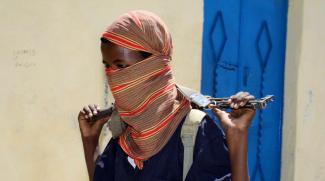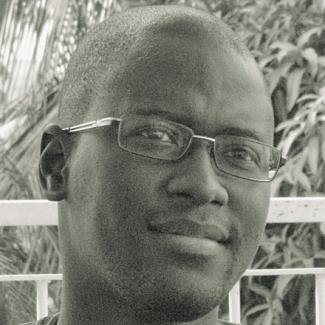Africa
Disasters waiting to happen
 picture-alliance / dpa
picture-alliance / dpa
In Africa, unemployment is thus a phenomenon among the urban educated youth with a middle-class background. What they have in common with the underemployed, however, is that they are denied the possibility of building a bright future for themselves. They too lack regular incomes and live on the margins of society.
In Africa, the structural adjustment programmes demanded by the International Monetary Fund (IMF), the World Bank and donor governments contributed to increasing unemployment and informal employment from the early 1980s to the turn of the millennium.
Many civil servants were fired, and government agencies stopped recruiting. Formal employment has remained sluggish ever since. Though Africa experienced considerable economic growth in recent years, it was jobless growth. In Senegal for example, the informal sector accounts for 99 % of the additional employment that was created in the years 2001 to 2010, the best decade for postcolonial Senegal in terms of growth.
The lack of prospects causes anger and frustration. Young people, who constitute more than 60 % of the people in many countries, are affected in particular. To some extent, structural adjustment contributed to African countries’ transition from military regimes and one-party authoritarianism to multi-party democracy. People’s frustration fed their desire for change. A similar pattern was evident in the Arab spring uprisings. In Tunisia, Egypt and other Arab countries, a large share of the youth feels marginalised. It is a problem, however, that elected governments of multi-party democracies have hardly managed to gear economies to more and better employment either.
For the African youth, democratic mobilisation is unfortunately not the only response to the lack of prospects. Other responses are migration – including clandestine migration to Europe –, crime and religious extremism.
Crime tends be especially bad in societies marked by huge inequalities. Where formal employment is rare, society becomes polarised between a few “haves” and masses of “have-nots”. This is a setting in which crime flourishes – from petty theft to murder. Today, crime rates are rising all over Africa, affecting everyone, especially the poor. Crime is how some people adapt to an unfair society. Some of the better-off do so too.
Those who turn to religious extremism, however, are contesting the cultural and political principles upon which current African states are built. Militant fundamentalists suggest that the current systems should be violently overthrown. They want to impose a new order based on religious doctrines. Many countries – including Nigeria, Niger, Chad, Mali, Libya, Somalia, Kenya and others –are suffering murderous terrorist attacks.
So far, only a small share of Africa’s youth is attracted to religious extremism. But violent militias seem to be gaining ground. There can be no doubt that they are benefiting from young people’s discontent.
Neither crime nor faith-inspired terrorism can be defeated by the security forces alone. Educational and occupational battlegrounds matter very much. African governments must ensure that young people get a good education and good jobs. In 41 sub-Saharan countries, the labour force is set to double by 2050. This demographic trend is a fact, and it poses serious challenges. Making matters even more difficult, technological innovations are increasingly making human labour redundant.
Africa needs a new paradigm to create viable economic prospects for its young generation. Failure will mean more unrest, more migration, more crime and more religious extremism.
Ndongo Samba Sylla manages programmes and research at the Dakar office of the Rosa Luxemburg Foundation, which is affiliated to The Left, a party in Germany’s federal parliament Bundestag.
n.sylla@rosalux.sn




